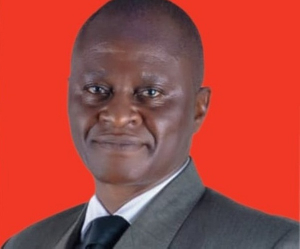Bolgatanga, Sept 10, GNA - Project Fives Alive, a non-governmental Organization, is collaborating with the Catholic Church to support Ghana's faith-based public health services to meet the fourth Millennium Development Goals objective of reducing mortality in children less than five years.
In furtherance of this the NGO organized a day's workshop with the Upper East Regional Directorate of the Ghana Health Service (GHS) in Bolgatanga on Wednesday. Under the MDG the health sector targets to reduce an estimated 110 per 1,000 live births to less than 40 per 1,000 live births by the year 2015.
The NGO, which has initiated simple childcare methods for treatment and care to ensure that children under age five survive from diseases as well as check mortality in them, has worked in remote communities in the three northern regions in this direction. The application of this innovation is expected to reduce infant mortality and morbidity by 60 per cent by the year 2015. The Director of Project Fives Alive, Dr. Amma Yeboah Nana Twum-Danso, said the project was an ambitious one that aimed at working within the antenatal spectrum to reduce preventable deaths among infants in the three northern regions.
Dr. Twum-Danso said her outfit's focus was on the MDG and that the intentions were to get children under five years alive through closely monitored health behaviour in children and their mothers and pregnant women who visit health facilities for antennal services. She said as part of the collaboration with the GHS, learning sessions were organized on quality improvement with support from project staff to develop, test, assess and change ideas to improve processes in maternal and child health services. Staff of the GHS had also received training on good antenatal care, skilled delivery, neonatal care and infant and child care to update their skills.
Dr. Twum-Danso said through the innovations, the project made good impressions in its achievements and it chalked success in the Navrongo-Bolgatanga Diocese and the Jirapa-Lambussie District reaching above the collaborative target of 75 per cent. A Deputy Regional Director of Health Services in charge of Public Health, Dr. James Akpabli, commended health facilities in the region for showing interest in the Kangaroo Mother Care Programme and said the practice had saved the lives of a number of children whose deaths could not have been prevented. He appealed to the participants, who were drawn from District Health Management Teams (DHMTs) in all nine districts in the region, to accept change and embrace wholeheartedly the Kangaroo system so that they could save more infant lives in the region. 10 Sept 09
Regional News of Thursday, 10 September 2009
Source: GNA
















